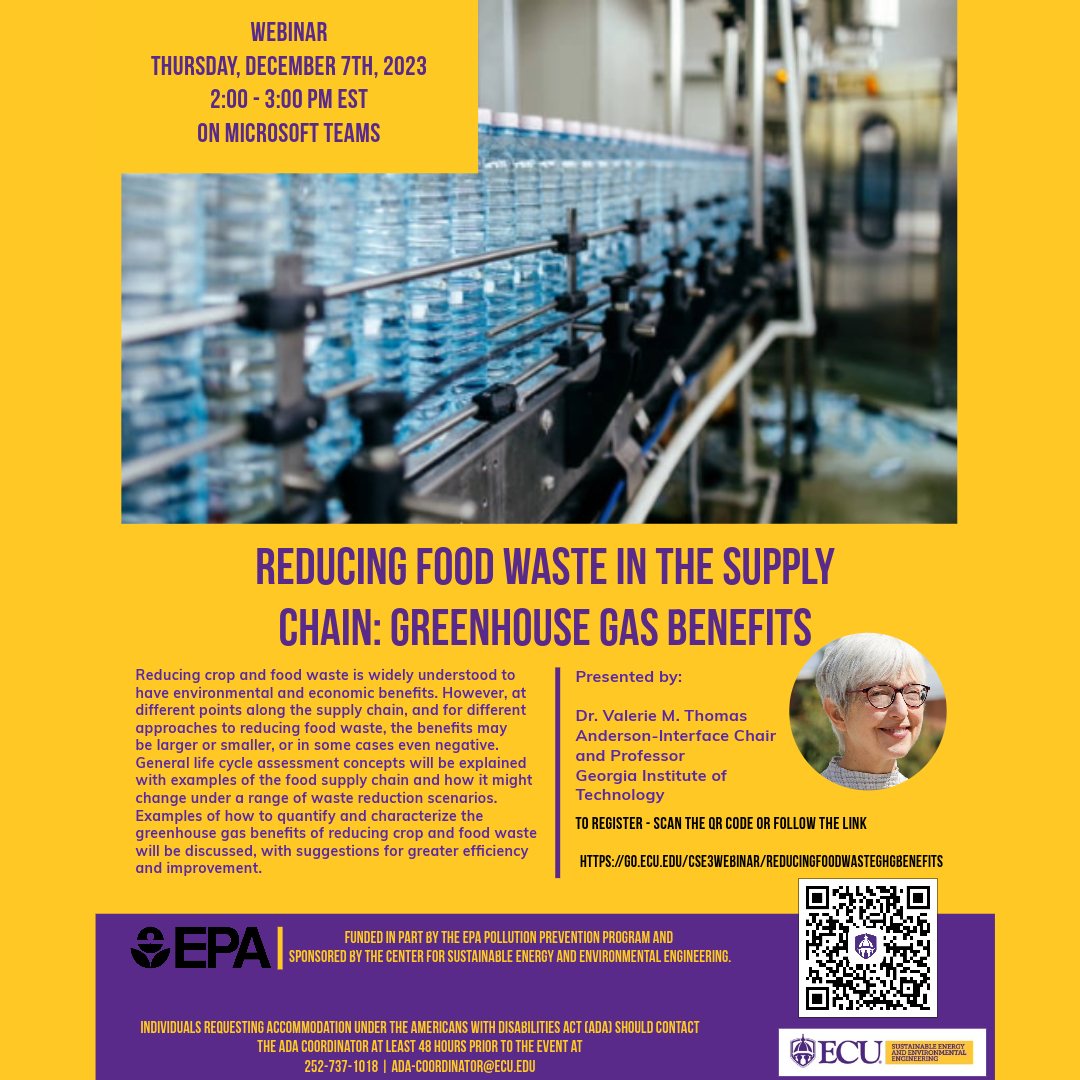
Session Overview
Reducing crop and food waste is widely understood to have environmental and economic benefits. However, at different points along the supply chain, and for different approaches to reducing food waste, the benefits may be larger or smaller, or in some cases even negative. General life cycle assessment concepts will be explained with examples of the food supply chain and how it might change under a range of waste reduction scenarios. Examples of how to quantify and characterize the greenhouse gas benefits of reducing crop and food waste will be discussed, with suggestions for greater efficiency and improvement.
About Dr. Valerie M. Thomas
Valerie Thomas is the Anderson-Interface Chair of Natural Systems and Professor in the H. Milton School of Industrial and Systems Engineering, with a joint appointment in the School of Public Policy. Dr. Thomas's research interests are energy and materials efficiency, sustainability, industrial ecology, technology assessment, international security, and science and technology policy. Current research projects include low carbon transportation fuels, carbon capture, building construction, and electricity system development. Dr. Thomas is a Fellow of the American Association for the Advancement of Science, and of the American Physical Society. She has been an American Physical Society Congressional Science Fellow, a Member of the U.S. EPA Science Advisory Board, and a Member of the USDA/DOE Biomass Research and Development Technical Advisory Committee. She has worked at Princeton University in the Princeton Environmental Institute and in the Center for Energy and Environmental Studies, and at Carnegie Mellon University in the Department of Engineering and Public Policy. Dr. Thomas received a B. A. in physics from Swarthmore College and a Ph.D. in theoretical physics from Cornell University.